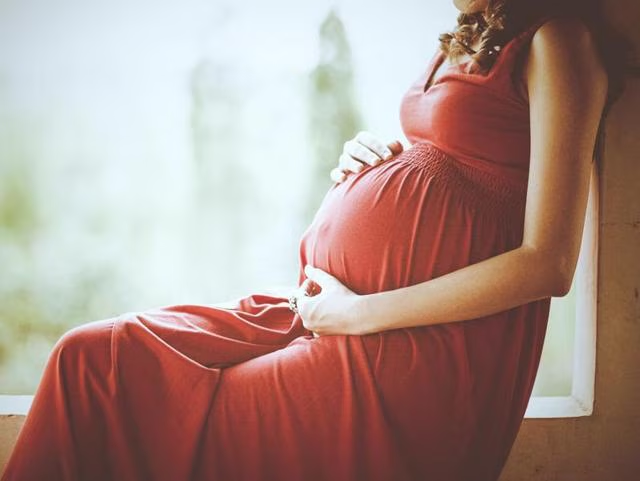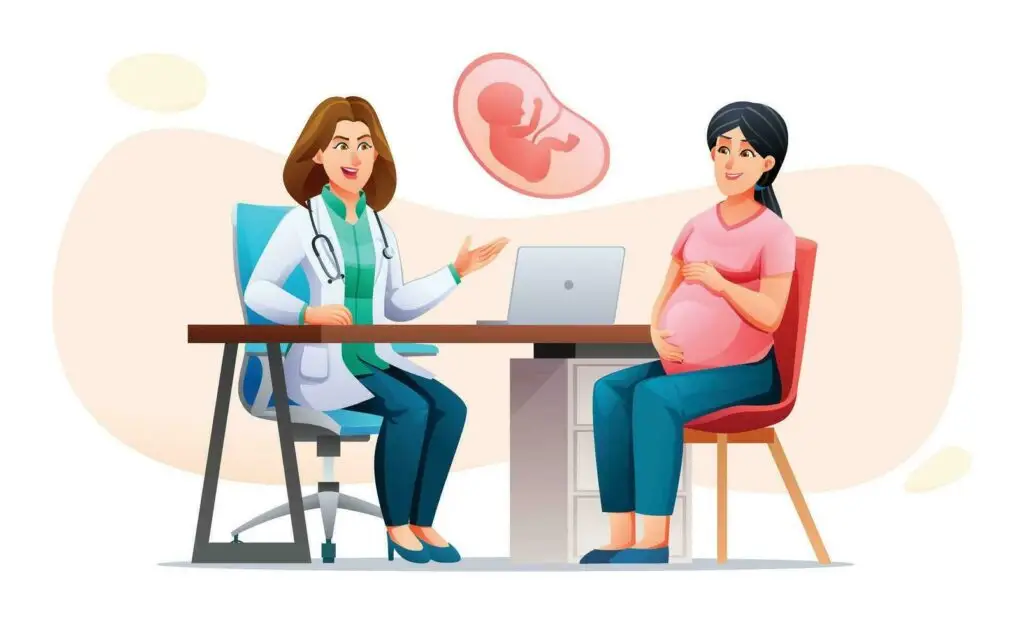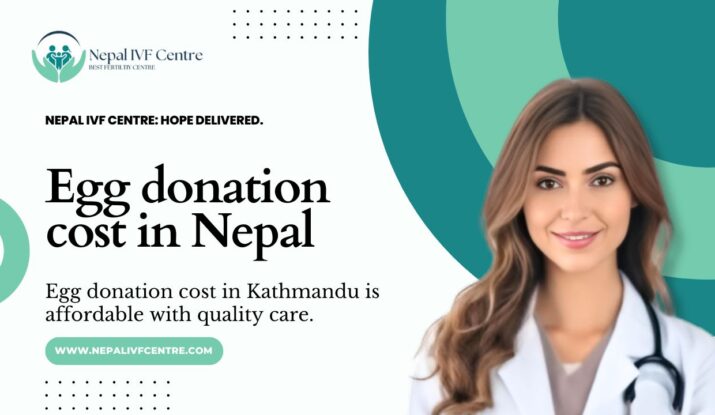Becoming a parent is one of the deepest desires of many individuals and couples. However, for some, natural conception becomes a challenging journey. For women who cannot conceive due to poor egg quality, advanced age, or other medical reasons, egg donation offers a precious ray of hope. In recent years, Nepal has emerged as a trusted and affordable destination for egg donation and fertility treatments. If you are planning to explore egg donation, understanding the egg donation cost in Nepal is a vital first step.
This article will guide you through everything you need to know — the cost, the process, factors influencing the price, and how to make the right choice for your parenthood journey.

Understanding Egg Donation: A Gift of Life
Egg donation is a process where a healthy, fertile woman donates her eggs to help another individual or couple achieve pregnancy. These eggs are fertilized using sperm through the IVF process and the resulting embryo is transferred into the recipient’s uterus. The emotional and medical journey of egg donation is profound — it is not just a medical procedure, but a heartfelt collaboration between a donor and intended parents, making dreams of family a reality.
Women may require egg donation for several reasons:
- Premature ovarian failure
- Poor egg quality
- Genetic disorders
- Multiple IVF failures
- Advanced maternal age
In such cases, egg donation becomes the bridge that connects longing with fulfillment.
Why Choose Nepal for Egg Donation?
Nepal, a country known for its natural beauty and warm hospitality, has steadily gained recognition in the field of assisted reproductive technology. There are several reasons why intended parents are choosing Nepal for their egg donation journey:
- Affordability: Treatments are significantly less expensive than in countries like the USA, Australia, or Europe.
- Expertise: Fertility centers in Nepal are equipped with highly qualified doctors and embryologists trained internationally.
- Legal Clarity: Egg donation is permitted under Nepali law with strict regulations to protect both donors and recipients.
- Advanced Technology: Many clinics have state-of-the-art IVF labs and offer latest techniques like ICSI, embryo freezing, and PGT.
- Availability of Donors: A broad selection of healthy, thoroughly screened egg donors is available, ensuring a faster treatment cycle.
- Personalized Care: Clinics in Nepal offer a patient-centric approach, making the emotional journey more comfortable.
For couples and individuals looking for quality treatment within an affordable budget, Nepal stands out as a beacon of hope.

Egg Donation Cost in Nepal
The egg donation cost in Nepal typically ranges from NPR 400,000 to NPR 600,000 (approximately USD 3,000 to USD 4,500). This makes Nepal one of the most cost-effective destinations for egg donation compared to other countries, where the same procedure can cost upwards of USD 20,000.
It’s important to note that this is a general estimate, and the final cost can vary depending on specific factors such as:
- Donor profile
- Use of fresh vs. frozen eggs
- Recipient’s medical needs
- Additional services like ICSI, embryo freezing, or genetic testing
A good clinic will provide a transparent package covering all major steps without hidden charges.
What is Included in the Egg Donation Cost?
Typically, the egg donation package in Nepal covers the following:
- Donor screening and selection
- Donor medications and monitoring
- Egg retrieval procedure
- Fertilization through IVF or ICSI
- Embryo culture
- Embryo transfer into the recipient
- Doctor’s consultations and ultrasound scans
- Standard laboratory tests
Some packages may also include embryo freezing and storage for a limited period.
However, recipient medications (like hormonal support during implantation and pregnancy confirmation) are sometimes charged separately. Always clarify what is included in the package beforehand.
Factors Affecting Egg Donation Cost in Nepal
While the cost is generally affordable, there are certain variables that can impact the final amount:
Type of Egg Donor
Anonymous donors are the most common, and their compensation is typically included in the standard cost. However, if you are choosing a known donor or a donor with specific qualifications (high education, particular ethnicity), the compensation may be higher.
Fresh vs. Frozen Eggs
- Fresh Donor Cycle: Slightly more expensive as it requires synchronization of donor and recipient cycles.
- Frozen Donor Eggs: May reduce costs and allow flexibility in planning the embryo transfer.

Additional Fertility Treatments
If procedures like ICSI, assisted hatching, PGT (Preimplantation Genetic Testing), or sperm donation are needed, they can add to the cost.
Clinic Reputation and Technology
Top-tier clinics with better success rates and cutting-edge technology may charge a premium for their services.
Recipient Medications
Hormonal medications needed to prepare the recipient’s uterus for embryo transfer are usually additional costs.
Legal and Administrative Costs
Documentation, legal contracts, and translation services (for international patients) may involve minor extra charges.
The Process of Egg Donation in Nepal
Understanding the step-by-step process can help intended parents prepare mentally, emotionally, and financially.
Step 1: Initial Consultation
You will have a detailed consultation with the fertility specialist. Your medical history will be reviewed, and a personalized treatment plan will be created.
Step 2: Donor Matching
Clinics will provide profiles of available donors. You can review donor information such as age, physical characteristics, medical history, education, and other traits.
Step 3: Screening and Synchronization
Once the donor is selected, she undergoes rigorous medical, genetic, and psychological screenings. If it is a fresh cycle, the donor’s menstrual cycle is synchronized with the recipient’s cycle using medications.
Step 4: Egg Retrieval
The donor undergoes hormonal stimulation to produce multiple eggs, followed by egg retrieval through a minor surgical procedure under anesthesia.
Step 5: Fertilization and Embryo Development
The retrieved eggs are fertilized with sperm (from the partner or a donor). The embryos are then monitored in the laboratory for 3-5 days.
Step 6: Embryo Transfer
One or two high-quality embryos are transferred into the recipient’s uterus, ideally timed for maximum chances of implantation.
Step 7: Pregnancy Test
After about two weeks, a blood test (beta-hCG) is performed to confirm if pregnancy has occurred.
Success Rate of Egg Donation in Nepal
One of the key reasons for the popularity of egg donation in Nepal is the high success rates. On average, IVF with donor eggs boasts a success rate of 60% to 75% per cycle. Some clinics with advanced technology and experienced embryologists even report higher rates.
Factors that influence success rates include:
- Age of the recipient
- Uterine health
- Quality of sperm
- Overall embryo quality
Opting for egg donation greatly improves the chances of conception, especially for women above the age of 40 or those with compromised ovarian reserve.

Advantages of Egg Donation in Nepal
Choosing Nepal for your egg donation journey comes with numerous benefits:
- Affordable treatment packages
- Quick availability of healthy, screened donors
- Advanced IVF laboratories and technologies
- Personalized care and emotional support
- Culturally sensitive treatment environment
- Short waiting times for starting treatment
Moreover, many clinics offer services tailored for international patients, including visa assistance, accommodation help, and travel coordination.
Challenges to Consider
While Nepal offers excellent opportunities, there are some considerations:
- Travel logistics and accommodation costs need to be planned.
- Communication gaps may occur in smaller clinics.
- Psychological preparation is important for using donor eggs, both for the recipient and the family.
Choosing a reputed clinic that offers counseling services can help overcome these challenges effectively.
How to Choose the Best Clinic for Egg Donation in Nepal?
Choosing the right clinic is one of the most important decisions. Here’s what to look for:
- Experienced doctors and embryologists
- High success rates in donor egg IVF cycles
- Availability of detailed donor profiles
- Transparent pricing with no hidden costs
- Good patient testimonials and reviews
- Comprehensive counseling and emotional support
Always schedule a consultation first and feel comfortable with the team who will be handling your treatment.
Financial Planning for Egg Donation
Since egg donation involves a significant financial investment, here are some tips for financial planning:
- Research and compare clinics carefully
- Ask about all-inclusive packages to avoid surprises
- Check if the clinic offers installment plans
- Save separately for travel and accommodation
- Budget for potential second cycles if necessary
Some clinics also offer multi-cycle packages at a discounted rate for added peace of mind.
Egg Donation Cost Comparison: Nepal vs Other Countries
Let’s understand how much you can save:
- USA: $25,000 to $40,000
- Australia: $15,000 to $20,000
- Europe: $12,000 to $18,000
- India: $4,000 to $6,000
- Nepal: $3,000 to $4,500
Clearly, Nepal offers world-class treatment at a fraction of the price compared to western countries, without compromising quality.
Why choose the Nepal IVF Centre?
A compassionate service provider like Nepal IVF Centre is an expert in the field of parenthood and supports patients in making their parents’ dreams come true. We, at Nepal IVF Centre, have in place a fully experienced team that works round the clock to custom-create specialised IVF treatment strategies for all patients. We guarantee attentive and sophisticated care to all patients while using specialised technology to maximise success rates.
Our understanding of the IVF emotional journey enables us to actively support you throughout the process. Furthermore, my treatment options include very affordable and quality value statements, making IVF available to more families. Lastly, in our firm belief, the combination of success and comfort, along with a welcoming environment, makes us the best choice for people planning to start or grow a family.
Conclusion
Parenthood is a journey of hope, resilience, and immense joy. For those who require the support of an egg donor, Nepal offers an affordable, compassionate, and effective pathway to achieving that dream. The egg donation cost in Nepal remains highly accessible while offering excellent care standards and emotional support to intended parents.
By choosing a reputed clinic, preparing emotionally and financially, and understanding the process, you can take confident steps toward holding your bundle of joy.
The dream of building your family is closer than you imagine — and Nepal stands ready to welcome you with open arms and caring hands.
FAQs (Frequently Asked Questions)
What is the average cost of egg donation in Nepal?
The average cost of egg donation in Nepal ranges between NPR 400,000 to NPR 600,000 (approximately USD 3,000 to USD 4,500), depending on the clinic and the package chosen.
Is egg donation legal in Nepal?
Yes, egg donation is legally permitted in Nepal, and fertility clinics follow strict guidelines to protect both donors and recipients.
Can I choose the egg donor?
Yes, clinics provide detailed anonymous donor profiles, and you can choose a donor based on characteristics such as ethnicity, education, and medical history.
Are there any hidden costs in egg donation?
Reputed clinics are transparent about their pricing. However, costs for medications for the recipient, additional procedures like ICSI, or embryo freezing may be charged separately.
How successful is egg donation IVF in Nepal?
Egg donation IVF success rates in Nepal range from 60% to 75% per cycle, depending on several factors, including embryo quality and uterine health.
Can international patients undergo egg donation treatment in Nepal?
Yes, many fertility clinics in Nepal specialise in treating international patients, offering assistance with travel, accommodation, and legal documentation.

